第80章 I. MADAME CLARENCE'S DRAWING-ROOM(1)
MADAME CERES
"Only extreme things are tolerable." Count Robert de Montesquiou.
Madame Clarence, the widow of an exalted functionary of the Republic, loved to entertain. Every Thursday she collected together some friends of modest condition who took pleasure in conversation. The ladies who went to see her, very different in age and rank, were all without money, and had all suffered much. There was a duchess who looked like a fortune-teller and a fortune-teller who looked like a duchess. Madame Clarence was pretty enough to maintain some old liaisons, but not to form new ones, and she generally inspired a quiet esteem. She had a very pretty daughter, who, since she had no dower, caused some alarm among the male guests; for the Penguins were as much afraid of portionless girls as they were of the devil himself. Eveline Clarence, noticing their reserve and perceiving its cause, used to hand them their tea with an air of disdain. Moreover, she seldom appeared at the parties and talked only to the ladies or the very young people. Her discreet and retiring presence put no restraint upon the conversation, since those who took part in it thought either that as she was a young girl she would not understand it, or that, being twenty-five years old, she might listen to everything.
One Thursday therefore, in Madame Clarence's drawing-room, the conversation turned upon love. The ladies spoke of it with pride, delicacy, and mystery, the men with discretion and fatuity; everyone took an interest in the conversation, for each one was interested in what he or she said. A great deal of wit flowed; brilliant apostrophes were launched forth and keen repartees were returned. But when Professor Haddi began to speak he overwhelmed everybody.
"It is the same with our ideas on love as with our ideas on everything else," said he, "they rest upon anterior habits whose very memory has been effaced.
In morals, the limitations that have lost their grounds for existing, the most useless obligations, the cruelest and most injurious restraints, are because of their profound antiquity and the mystery of their origin, the least disputed and the least disputable as well as the most respected, and they are those that cannot be violated without incurring the most severe blame. All morality relative to the relations of the sexes is founded on this principle: that a woman once obtained belongs to the man, that she is his property like his horse or his weapons. And this having ceased to be true, absurdities result from it, such as the marriage or contract of sale of a woman to a man, with clauses restricting the right of ownership introduced as a consequence of the gradual diminution of the claims of the possessor.
"The obligation imposed on a girl that she should bring her virginity to her husband comes from the times when girls were married immediately they were of a marriageable age. It is ridiculous that a girl who marries at twenty-five or thirty should be subject to that obligation. You will, perhaps, say that it is a present with which her husband, if she gets one at last, will be gratified; but every moment we see men wooing married women and showing themselves perfectly satisfied to take them as they find them.